Filter by
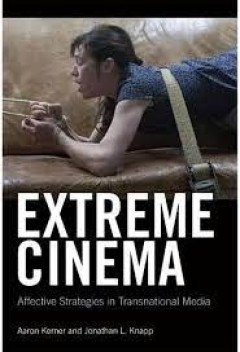
Extreme Cinema Affective Strategies in Transnational Media
Extreme Cinema examines the highly stylized treatment of sex and violence in post-millennial transnational cinema, where the governing convention is not the narrative but the spectacle.
- Edition
- -
- ISBN/ISSN
- 9781474402910
- Collation
- -
- Series Title
- -
- Call Number
- -
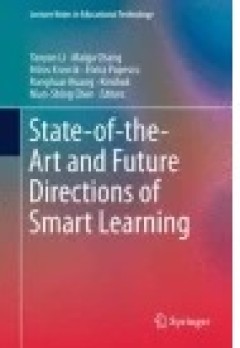
State-of-the-Art and Future Directions of Smart Learning
The rapid development and popularization of information technology significantly increase the speed of the generation of human knowledge, which has brought fundamental impacts on the modes of education and the methods of instruction. The traditional ways of learning are facing a revolution to adapt to the requirements of the information age. In order to facilitate easy, engaging and effecti…
- Edition
- -
- ISBN/ISSN
- 978-981-287-868-7
- Collation
- -
- Series Title
- -
- Call Number
- -
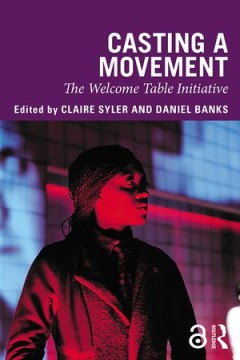
Casting a Movement: The Welcome Table Initiative
Casting a Movement brings together US-based actors, directors, educators, playwrights, and scholars to explore the cultural politics of casting.Drawing on the notion of a "welcome table"—a space where artists of all backgrounds can come together as equals to create theatre—the book’s contributors discuss casting practices as they relate to varying communities and contexts, including Middl…
- Edition
- -
- ISBN/ISSN
- 9780429948282
- Collation
- -
- Series Title
- -
- Call Number
- 790.2 CAS c
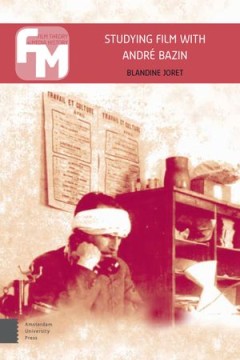
Studying Film with André Bazin
The impact of French film critic André Bazin (1918-1958) on the development of film studies, though generally acknowledged, remains contested. A passionate initiator of film culture during his lifetime, his ideas have been challenged, defended and revived throughout his afterlife. Studying Film with André Bazin offers an entirely original interpretation of major concepts from Bazin’s legacy…
- Edition
- -
- ISBN/ISSN
- 9789048542086
- Collation
- -
- Series Title
- -
- Call Number
- 791.43 JOR s
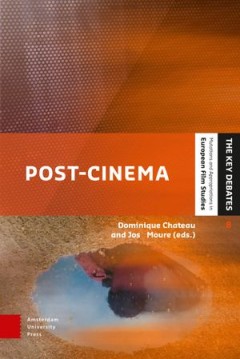
Post-Cinema: Cinema in the Post-art Era
Post-cinema designates a new way of making films. It is time to ask whether this novelty is complete or relative and to evaluate to what extent it represents a unitary or diversified current. The book proposes to integrate the post-cinema question within the post-art question in order to study the new ways of making filmic images. The issue will be considered at three levels: the impression of …
- Edition
- -
- ISBN/ISSN
- 9789048551941
- Collation
- -
- Series Title
- -
- Call Number
- 791.43 POS p
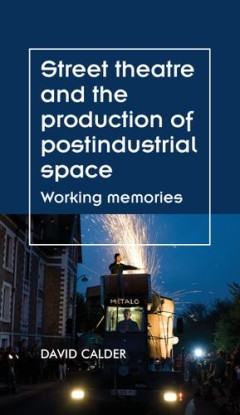
Street theatre and the production of postindustrial space
Street theatre and the production of postindustrial space explores how street theatre transforms industrial space into postindustrial space. Deindustrializing communities have increasingly turned to cultural projects to commemorate industrial heritage while simultaneously generating surplus value and jobs in a changing economy. Through analysis of French street theatre companies working out of …
- Edition
- -
- ISBN/ISSN
- 9781526147288
- Collation
- -
- Series Title
- -
- Call Number
- 792 CAL s
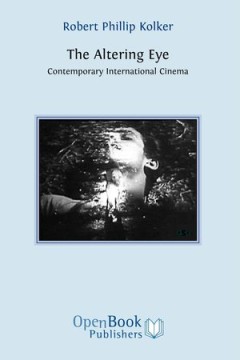
The Altering Eye: Contemporary International Cinema
The Altering Eye covers a "golden age" of international cinema from the end of WWII through to the New German Cinema of the 1970s. Combining historical, political, and textual analysis, Kolker develops a pattern of cinematic invention and experimentation from neorealism through the modernist interventions of Jean-Luc Godard and Rainer Werner Fassbinder, focusing along the way on such major figu…
- Edition
- -
- ISBN/ISSN
- 9781906924058
- Collation
- -
- Series Title
- -
- Call Number
- 791.43 KOL a
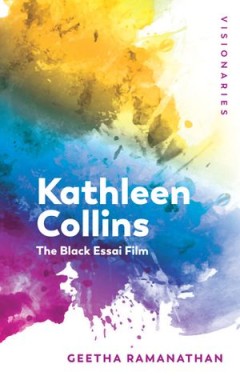
Kathleen Collins: The Black Essai Film
A philosopher-filmmaker, Kathleen Collins decisively redefined the parameters of African American film with Losing Ground (1982). This book uses detailed analyses of Collins’s films to contextualise her work in the African American, feminist and world film traditions, and it highlights her contribution to each of these canons.
- Edition
- -
- ISBN/ISSN
- 9781474440707
- Collation
- -
- Series Title
- -
- Call Number
- 791.43 RAM k
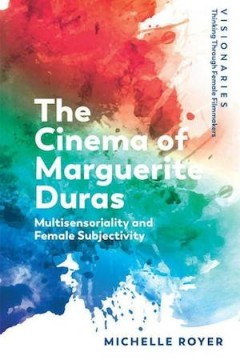
The Cinema of Marguerite Duras: Multisensoriality and Female Subjectivity
The writer Marguerite Duras was a key figure in post-war French cinema, pioneering innovations such as the disjunction of film and image, and the primacy given to voices, silence and music. Her multisensorial approach opened up new spaces for the female experience to be expressed. Although she worked with some of the best French visual technicians and musicians of her time, critiques have often…
- Edition
- -
- ISBN/ISSN
- 9781474427869
- Collation
- -
- Series Title
- -
- Call Number
- 791.43 ROY c
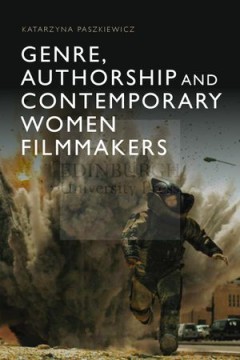
Genre, Authorship and Contemporary Women Filmmakers
Examining the significance of women’s work in popular film genres, Genre, Authorship and Contemporary Women Filmmakers sheds light on women’s contribution to genre cinema through an exploration of filmmakers like Kathryn Bigelow, Diablo Cody, Sofia Coppola and Kelly Reichard. Exploring genres as diverse as horror, the war movie, the Western, the costume biopic and the romantic comedy, the b…
- Edition
- -
- ISBN/ISSN
- 9781474425278
- Collation
- -
- Series Title
- -
- Call Number
- 791.43 PAS g
 Computer Science, Information & General Works
Computer Science, Information & General Works  Philosophy & Psychology
Philosophy & Psychology  Religion
Religion  Social Sciences
Social Sciences  Language
Language  Pure Science
Pure Science  Applied Sciences
Applied Sciences  Art & Recreation
Art & Recreation  Literature
Literature  History & Geography
History & Geography